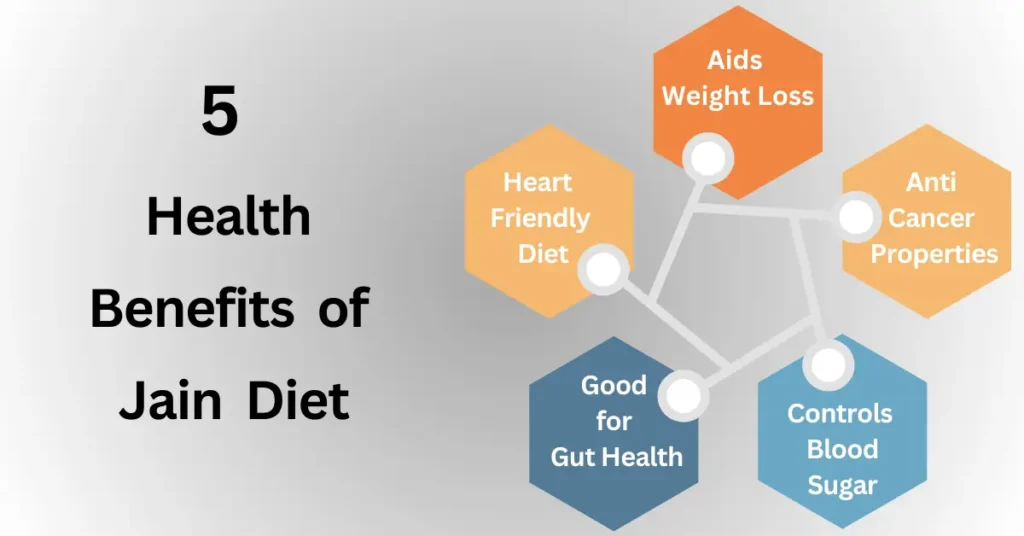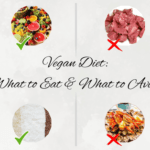Ashu’s Curiosity
Today Ashu is surprised to know that there is a community that is following a more restrictive meal plan compared to his family.
Since his birth, he has never seen anyone in his family even speaking about non-vegetarian foods. Eating them is out of the question. But, one of his friends who belongs to the Jain community told him that they adhere to a much strict culinary.
As per him, a Jain follower must avoid eating animal products like meat, eggs and seafood along with honey. Not only that, they must exclude root vegetables such as Beetroot, Carrot, Garlic, and Onion along with spices such as Ginger and turmeric root (Although Turmeric powder is allowed).
Now, Ashu is curious to know more about the Jain Diet and how adopting a meal plan based on Jain’s philosophy can help him lose weight. Again, he is searching for it on Know Ur Diet, Let us see what he finds:
What is Jainism?
Jainism is an ancient Indian religion that is followed by millions throughout the world especially, in India. Jain religion is based on “Ahimsa” which means non-violence.
Jain word comes from the Sanskrit word Jina (Victor). So as per it, a Jain person is one who achieved victory over emotions and self.
In Jainism, there are 24 Tirthankaras with Rishabhdeva being the first one while Mahavir is the last of them. They all have preached about the concept of the Ahimsa in which harming any living being is completely prohibited.
“Do not injure, abuse, oppress, enslave, insult, torment, torture, or kill any creature or living being.”.
– Vardhamana Mahavir Jain
What is Jain Vegetarian Food?
When we talk about Vegetarianism, we make a clear picture of cutting out animal foods from the daily meal plan. But in Jain vegetarian food, even some plant-based foods are restricted.
We know that Jain’s philosophy greatly focuses on non-violence to any creature. They restrict all those foods that are extracted through violence. This means a Jain person cannot include animal foods like meat, chicken, seafood and beef in his diet as they are obtained by killing the animal.
Also, foods like honey and eggs are avoided because processing them involves some form of violence against bees and hens.
In the same context, root vegetables are consumed by taking out the root of the whole plant. This is considered violence against the creature as it eliminates any possibility of regeneration for the plant. Also, the uprooting of root vegetables is responsible for killing many micro-organisms which goes against Jain teachings.
Due to this reason, all Jain recipes are prepared without using those vegetables and spices that are integral parts of Indian cuisine, such as Garlic, Onion and Ginger.
What to Eat & What to Avoid in Jain Diet
So based on Jainism teaching, we have made a list of food items that you can include while following the Jain vegetarian meal plan.
What To Eat in Jain Diet
| Category | Food Included |
|---|---|
| Vegetables | Cabbage, Tomato, Lettuce, Bell Pepper, Cucumber, Pumpkin, Bottle gourd, Asparagus, Green peas, Lemon, Drum sticks, Lady’s finger (Okra). |
| Fruits | Apple, Mango, Orange, Peach, Banana, Berries, Coconut, Chickoo, Guava, Kiwi fruit, Papaya, Pineapple, Pomegranate. |
| Grains & Pulses | Chickpeas, Barley, Wheat, Green gram, Kidney beans, Lentil, Red gram, Paddy. |
| Spices & Herbs | Bay leaf, Cardamom, Cinnamon, Cloves, Cumin seeds, Fennel seeds, Saffron, Mustard seeds. |
| Nuts & Seeds | Almond, Apricot, Dates, Cashew nuts, Walnuts, Pistachios, Raisins, Lotus seeds. |
| Healthy Fats | Desi ghee, Olive oil, Saffola oil, Mustard oil, Sunflower oil, Soyabean oil. |
| Dairy | Milk, Curd, Yogurt, Paneer, Butter, Lassi. |
What to Avoid in Jain Diet
Following is the list of foods that are restricted in Jain vegetarian meal.
| Category | Food Excluded |
|---|---|
| Vegetables | Potato, Sweet Potato, Eggplant, Spinach, Garlic, Onion, Carrot, Radish, Beetroot, Yam. |
| Spices & Herbs | Ginger, Raw Turmeric. |
| Animal Products | Beef, Meat, Chicken, Egg, Seafoods, Honey. |
| Oily Foods | Samosa, Kachori, Chips, high-sugar desserts. |
| Junk Foods | Burgers, Pizzas, Pastas, French fries, |
| Processed Foods | Sauce, Mayonnaise, Ketchup, Carbonated drinks, Canned foods. |
| Others | Mushrooms, Alcohol, Tobacco. |
Based on the above-mentioned food list, we have created a 7-day Jain Diet plan for you.
7-day Jain Diet Plan
Following is a 7-day sample diet plan based on Jain’s philosophy. Remember that in all recipes we have suggested do not use Garlic, Ginger and Onion as Ingredients for preparing gravies.
Also, Evening dinner should be taken before sunset.
| As per standards, A man should take 2200 calories & a woman should take 1800 calories a day. |
| Day 1 | Monday |
|---|---|
| Wake up drink | 1 glass of Jaggery water with 2 tsp of overnight soaked Chia seeds. |
| Breakfast (Men- 675 kcal, Women- 560 kcal) | 2 servings of Banana Sandwich (506 kcal) with 1 cup of Iced Coffee (100 kcal). |
| Lunch (Men- 900 kcal, Women- 730 kcal) | 1 serving of Chickpeas curry (270 kcal) & 3 Wheat chapati (360 kcal) with 1 cup of Cucumber Raita (125 kcal). |
| Evening Dinner (Men- 625 kcal, Women- 510 kcal) | 1 serving of Banana Halwa (416 kcal) with 1 cup of Lentil Soup (139 kcal). |
| Goodnight Drink | Ashwagandha Tea |
| Day 2 | Tuesday |
|---|---|
| Wake up drink | 1 glass of Jaggery water with 2 tsp of overnight soaked Chia seeds. |
| Breakfast (Men- 675 kcal, Women- 560 kcal) | 3 servings of Split Chickpeas (Chana Dal) seekh kebab (423 kcal) with 1 cup of Coconut water (50 kcal). |
| Lunch (Men- 900 kcal, Women- 730 kcal) | 1 serving of Shahi Paneer (347 kcal) with 3 Wheat chapati (360 kcal). |
| Evening Dinner (Men- 625 kcal, Women- 510 kcal) | 1 serving of Capsicum Besan Sabji (125 kcal) with 2 servings of Lemon Rice (350 kcal). |
| Goodnight Drink | Ashwagandha Tea |
| Day 3 | Wednesday |
|---|---|
| Wake up drink | 1 glass of Jaggery water with 2 tsp of overnight soaked Chia seeds. |
| Breakfast (Men- 675 kcal, Women- 560 kcal) | 1 serving of Papad Poha (358 kcal) with 1 glass of Banana smoothie in Almond milk (236 kcal). |
| Lunch (Men- 900 kcal, Women- 730 kcal) | 1 serving of Methi Paneer Bhurji (296 kcal) with 1 Whole Wheat kulcha (170 kcal). |
| Evening Dinner (Men- 625 kcal, Women- 510 kcal) | 1 serving of Dal Fry (306 kcal) with 1 cup of Jeera Rice (246 kcal). |
| Goodnight Drink | Ashwagandha Tea |
| Day 4 | Thursday |
|---|---|
| Wake up drink | 1 glass of Jaggery water with 2 tsp of overnight soaked Chia seeds. |
| Breakfast (Men- 675 kcal, Women- 560 kcal) | 1 serving of Apple Cinnamon Oatmeal (175 kcal) with 1 glass of Vanilla milkshake (122 kcal). |
| Lunch (Men- 900 kcal, Women- 730 kcal) | 1 serving of Crispy Okra (166 kcal) with 2 Wheat chapati (240 kcal) & 1 serving of Chickpea Salad (300 kcal). |
| Evening Dinner (Men- 625 kcal, Women- 510 kcal) | 1 serving of Jain Sichuan Fried Rice (260 kcal) with Tomato & Coconut milk Soup (95 kcal). |
| Goodnight Drink | Ashwagandha Tea |
| Day 5 | Friday |
|---|---|
| Wake up drink | 1 glass of Jaggery water with 2 tsp of overnight soaked Chia seeds. |
| Breakfast (Men- 675 kcal, Women- 560 kcal) | 1 serving of medium-sized Paneer Paratha (276 kcal) with 1 cup of Orange Juice (111 kcal). |
| Lunch (Men- 900 kcal, Women- 730 kcal) | 1 serving of Roasted Tomato chutney (130 kcal) with 4 pieces of Green Peas Kebab (340 kcal) & 2 Wheat chapati (240 kcal). |
| Evening Dinner (Men- 625 kcal, Women- 510 kcal) | 4 serving of Black Bean & Corn Salad (320 kcal) with 1 serving of Rice Kheer (235 kcal). |
| Goodnight Drink | Ashwagandha Tea |
| Day 6 | Saturday |
|---|---|
| Wake up drink | 1 glass of Jaggery water with 2 tsp of overnight soaked Chia seeds. |
| Breakfast (Men- 675 kcal, Women- 560 kcal) | 2 servings of Pineapple celery and Pineer sandwich (496 kcal) with 1/2 cup of Homemade Tomato sauce (35 kcal). |
| Lunch (Men- 900 kcal, Women- 730 kcal) | 1 serving of Banana Kofta curry (270 kcal) with 2 Ragi Roti (188 kcal) & 1 serving of Avocado Salad (140 kcal). |
| Evening Dinner (Men- 625 kcal, Women- 510 kcal) | 1 serving of Corn Methi Pulao (227 kcal) with 1 cup of Pumpkin Soup (241 kcal). |
| Goodnight Drink | Ashwagandha Tea |
| Day 7 | Sunday |
|---|---|
| Wake up drink | 1 glass of Jaggery water with 2 tsp of overnight soaked Chia seeds. |
| Breakfast (Men- 675 kcal, Women- 560 kcal) | 150g of Upma (315 kcal) with 1 cup of fresh Mango lassi (186 kcal). |
| Lunch (Men- 900 kcal, Women- 730 kcal) | 1 serving of Sev Tomato Curry (610 kcal) with 2 wheat flour Roti (240 kcal). |
| Evening Dinner (Men- 625 kcal, Women- 510 kcal) | 1.5 serving of Brown Rice Vegetable Pulao (273 kcal) with 2 cups of Bottle Gourd (Loki) Soup (256 kcal). |
| Goodnight Drink | Ashwagandha Tea |
Calorie count in this diet plan is based on approx. value. You can make changes as per your dietary preferences and needs.
Health Benefits of eating Jain Recipes
There are several health benefits to adopting Jain eating habits in your daily meals. Some of them are mentioned below-

Aids Weight Loss
Although the Jain Diet is not focused on avoiding high-calorie foods, adopting it can support you in maintaining a healthy weight.
Jain philosophy excludes the intake of high-calorie animal foods like meat, beef, seafood and even eggs. This helps in controlling your calorie intake and putting you on a way to reduce body weight.
Jain food belief promotes avoiding night Dinner and conclude a day’s meal before sunset. Escaping dinner can help to accelerate the fat-burn process and get you in shape.
Good for Digestion
Jain vegetarian meal primarily focuses on plant foods that are high in fiber and minerals that assist in proper digestion and absorption of nutrients from the food.
The anti-inflammatory properties in plant-based foods can significantly lower the risk of having Inflammatory Bowel Disease (IBD). Also, a diet excluding animal foods can prevent acid exposure promoting good gut health.
Moreover, Jains avoid having meals late at night. This allows enough time for your stomach and other organs to relax and reset for the next meal.
Controls Type-2 Diabetes
All major studies in various countries have found a direct relationship between the consumption of animal foods especially red meat and processed meat with Type-2 Diabetes. Jain Food excludes all these products making it a diet to prevent diabetes.
At the same time, research has shown that having moderate consumption of dairy products like milk, curd and yogurt can even decrease the risk of type-2 diabetes.
Also, a plant-based diet promotes weight management and plays a significant role in controlling the blood sugar levels.
Prevents the Cancer
Cancers remain a major health concern throughout the world and having Jain recipes can help you in cutting down the risk of cancer. Plant foods such as berries, walnuts, grapes and even grains such as oatmeal, quinoa and brown rice are also helpful in lowering cancer risk.
Having a diet high in animal products can significantly increase the risk of cancer. There is evidence that has linked red meat, pork and lamb meat with pancreatic, prostate and colorectal cancers.
Also, night fasting can improve the response-ability of the immune system against cancer-causing cells. Fasting is also a great to reduce the risk of Obesity another factor of cancers.
Heart-Friendly Diet
When you look at the dietary habits of heart disease patients, most of them have animal foods in them. Having a meal that is high in animal products can put you at the risk of having health-related issues like strokes and heart failure.
Again, Jain vegetarian food can help you maintain a heart-friendly diet plan. It includes food such as fruits and vegetables (berries, tomato and citrus fruits), nuts, seeds and soy products.
Downside of Jain Diet
There is no doubt that Jain recipes and diet have a clear objective of being harmless to any living being. Not only to animals but even to plants & micro-organisms. Jain diet excludes all those food products that have violence involved in their making or procurement.
However, excluding them could have negative health effects as well some of them are:
Nutritional Deficiency
Animal foods such as red meat, fish and eggs are a good source of B12 Vitamin. This Vitamin plays an important role in maintaining growth of blood cell and DNA production. Also, it is essential for protein metabolism a process of breaking down of proteins and amino acids.
However, a Jain can fulfil this deficiency by adding dairy products, nuts and even certain fruits that are high in B12 Vitamin.
Can Affect Bone Health
Most foods that are avoided in Jain food are considered great sources of protein and calcium, especially poultry and fish. A meal plan that lacks these nutrients can lead to bone weakness and Arthritis.
You can add dairy products, fruits like apples, orange grapefruit even seeds like chia seeds and flaxseeds.
Lacks in Antioxidants
Root vegetables such as ginger, garlic and onion are rich in antioxidants such as phenolic, gingerol, allicin and quercetin. These all foods are excluded from Jain vegetarian meal as per Jain philosophy.
Conclusion
Know Your Diet has provided Ashu with a clear picture of the benefits of adopting a Jain diet. It excludes all those foods that have some sort of violence involved in their procurement such as Animal foods and root vegetables.
Having Jain food can get you many health benefits such as aiding in weight management and preventing you from chronic diseases like Type-2 Diabetes, Blood pressure and cancers.
Ashu’s family already follows a vegetarian diet and he only needs to avoid those plant-based foods that are restricted in Jain philosophy. However, this diet can also bring some downsides such as nutrient deficiency and lack of antioxidants.



